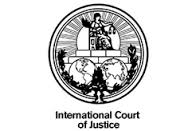The news of July 9, 2014 from Iraq is that 90 pounds of uranium compounds have come into possession of the Islamic State In Iraq and Levant (ISIS). The uranium was obtained from a university laboratory in Mosul, a city in Northern Iraq that is occupied by ISIS and is beyond the control of the Nation of Iraq. A spokesperson for the International Atomic Energy Agency has officially notified the United Nations in New York of these developments.
The International Atomic Energy Agency Convention on the Physical Protection of Nuclear Material obligates the signing nations to protect nuclear facilities and material in peaceful domestic use, storage and transport. The treaty, entered into in 1987 and modified in 2005 has 150 nations as “signatories”. The treaty covers the “low grade” nuclear material stolen by the ISIS. The International Atomic Energy Agency, in its press release, indicated that the nuclear material is not suited for atomic explosive weapons, but may be used in “dirty” bombs. A dirty bomb is a conventional explosive device embedded in radioactive material. The conventional explosives would spread the nuclear material and contaminate the explosive radius with levels of radioactivity that exceed acceptable levels of exposure for humans.
There is no judicial venue for enforcing agreements signed by nations. The Charter of the United Nations has a process for member nations to bring treaty violations before the Security Council, but no enforcement process exists. The United Nations created the International Court of Justice (ICJ) as a court for nations to litigate disputes in accord with international law.  The ICJ has been a forum of limited jurisdiction and has been a court where some member states go to seek resolution of disputes. The limitation of the court is it has no enforcement powers. Because the ICJ cannot enforce any of its rulings it has declined to take cases where the outcome would require enforcement. By example a civil court in the United States can use contempt powers to arrest and detain and fine persons who fail to comply with Court orders.
The ICJ has been a forum of limited jurisdiction and has been a court where some member states go to seek resolution of disputes. The limitation of the court is it has no enforcement powers. Because the ICJ cannot enforce any of its rulings it has declined to take cases where the outcome would require enforcement. By example a civil court in the United States can use contempt powers to arrest and detain and fine persons who fail to comply with Court orders.
The Security Council of the United Nations, under Chapter VII, can impose sanctions on member nations that threaten international peace and security but does not and has not invoked Chapter VII in matters that would require actual enforcement. At this time a violation of the Convention on the Physical Protection of Nuclear Material by ISIS may be beyond the powers of the ICJ to act and, for political reasons, the Security Council may not invoke Chapter VII. Individual citizens cannot force nations to comply with their treaty undertakings with some limited exceptions: The United States Supreme Court has, over the past 120 years, permitted some banks and corporations to sue in Federal Court when they are financially harmed by inaction or non-compliance by signatory nations to some treaty obligations.
 South Florida Criminal Defense Lawyer Blog
South Florida Criminal Defense Lawyer Blog



